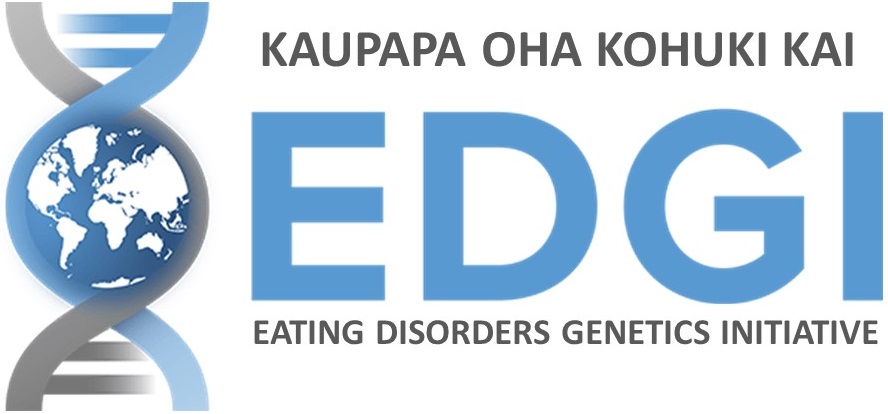Bringing binge eating disorder out of the shadows

Though often in the news, eating disorders are poorly understood. When thinking about eating disorders, people usually think of anorexia nervosa or sometimes bulimia nervosa, but rarely about the most prevalent eating disorder, binge-eating disorder (BED). In fact, many people have BED, but are unaware that they have a common and treatable condition. People affected by BED regularly eat large amounts of food and have a sense that they are unable to control their eating. These binges can happen even when someone isn’t hungry and are usually followed by feelings of guilt or disgust. Although binge episodes are also a hallmark of bulimia nervosa, those with BED don’t regularly engage in “compensatory behaviours” like vomiting, laxative abuse, or over-exercising. BED can occur in people of any weight and is more common in higher weight individuals. BED impacts the lives of those affected in many ways, and is linked to complications that often accompany higher weight, such as type 2 diabetes and other gastrointestinal cardiovascular problems.
BED is still underdetected and undertreated. Many people affected by it don’t seek treatment or struggle to access appropriate help. Public knowledge surrounding this condition is also limited and is distorted by our society’s preoccupation with weight loss and dieting. Most people also don’t realise that dieting has an extremely poor outcome in achieving long term weight loss, and in fact, people who engage in yo-yo dieting tend to experience incremental weight gain over time, exacerbating weight concerns. These misconceptions around weight control strategies mean those with BED tend to blame themselves for being unable to lose weight through dieting. Many people with BED are unaware that repeat dieting may actually contribute to the development of the eating disorder, so they never make their way to appropriate treatment.
Those who do seek help for BED may face a number of additional barriers. Firstly, they tend to be diagnosed at a much later stage than people with other eating disorders, or may never receive a diagnosis at all. Because BED also presents alongside obesity, some have found that healthcare providers focus more on their associated physical complications than on their psychological or behavioural symptoms. People with BED have also reported feeling that their healthcare providers were judgemental or insensitive toward them during consultations. Experiences like these can worsen feelings of shame and guilt and are further obstacles on the path to recovery. Seeking a GP who practices “weight inclusive healthcare,” meaning that they are able to “uncouple” weight from health and prescribe helpful interventions rather than always coming back to, “You need to lose weight.”
Research has shown that environmental factors including trauma and bullying can increase the risk of developing BED in some individuals, as can factors such as poor body image. These risk factors are unlikely to form the full picture though, as heritability for this condition is estimated at between 39% and 45%. This heritability suggests that genes contribute to its development alongside environmental factors, but beyond this we know little about particular genes that might predispose an individual to develop BED. A previous international genetics study of eating disorders, called The Anorexia Nervosa Genetics Initiative (ANGI), included over 500 New Zealand participants affected by anorexia nervosa as part of the largest ever sample of almost 17,000 people with anorexia nervosa. The ANGI research identified eight regions in the genome associated with anorexia nervosa and made an important breakthrough in our understanding of this disorder. That is, the genetic factors found to underpin anorexia nervosa not only influence brain function, but also impact metabolic characteristics including the regulation of insulin, lipid profile, and body size. The findings of ANGI were a key advancement for knowledge and treatment surrounding anorexia nervosa, but the genetic factors that underlie disorders like BED and bulimia nervosa remain unknown. The Eating Disorders Genetics Initiative (EDGI) is a large international study designed to address this knowledge gap, seeking to identify genes involved with not only anorexia nervosa but also bulimia nervosa and BED. Launched in New Zealand in March 2020, the EDGI study will continue recruiting volunteers until early 2023. The study includes participants who have ever met criteria for one or more of these eating disorders and does not require a formal diagnosis. Involvement in EDGI involves completing an in-depth online survey and providing a saliva sample for genetic analyses.
Interestingly, the number of EDGI participants recruited in the first year with each eating disorder was not proportionate to the estimated prevalence of each disorder within New Zealand. Relatively few people with a history of BED have come forward so far. Given that this disorder was only formally recognised as a diagnosis since 2013 and that much research to date has focused on anorexia nervosa and bulimia nervosa, the lower recruitment rate may reflect people with BED assuming this study isn’t for them. On the contrary, EDGI is the first large eating disorders study to include BED and the EDGI team is very keen to recruit more people who have experienced it! By recruiting larger numbers within this group, the EDGI study will be able to complete the first examination into the genetics of BED.
Anyone interested in participating in the EDGI study who has ever experienced BED, bulimia nervosa, or anorexia nervosa can find out more about the EDGI study by visiting https://edgi.nz/
Words by Lana Cleland, Jennifer Jordan, Martin A. Kennedy, and Cynthia M. Bulik
News
Participant Stories
Sorry, we couldn't find any posts. Please try a different search.





